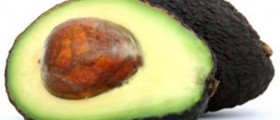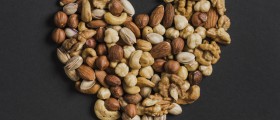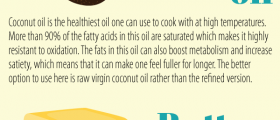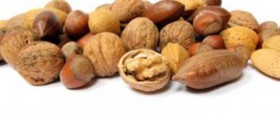
Seeds - Body Guards
The energy value of seeds is as equally important as the energy value of nuts. More than half of their content consists of unsaturated fat. Seeds stand out with a lot of essential fatty acids, necessary for the proper functioning of many important body functions.Sesame Seeds
Sesame seeds are rich in oleic and linoleic fatty acids, while about a fifth of their content consists of proteins of high biological value. Sesame seeds also contain copper, manganese, magnesium, calcium, iron, vitamin B1, zinc and dietary fibers. Besides that, sesame seeds are rich in sesamin and sesamolin that are characterized by many positive features such as property of lowering cholesterol and blood pressure. In addition, it appears that sesame protects the liver from oxidative damage.Sunflower Seeds
Sunflower seeds have a high percentage of oil (50 %), where multiple unsaturated fatty acids, especially linoleic, are prevalent. Sunflower seeds are an excellent source of vitamin E and B1 and a good source of manganese, magnesium, copper, selenium, vitamin B5, folic acid, and dietary fibers. Sunflower seeds contain powerful antioxidants - vitamin E and selenium. Antioxidants have the ability to neutralize harmful free radicals and thus protect the body from degenerative diseases such as cardiovascular and malignant diseases. Because of the favorable content of linoleic acid, vitamin E and proteins, the regular intake of sunflower seeds moisturize dry and dehydrated skin, and help with eczema.Nuts Protect the Health
Nuts are rich in fats, but it is a healthy combination of many unsaturated fatty acids.Hazelnuts Strengthen Nerves
Mixture of B vitamins contributes to nerve stability and together with lipids and fatty acids improves the functioning of the brain. Hazelnuts relieve even chronic problems because they contain hormone of happiness - serotonin, which reduces sensitivity to pain.Almonds Prevent Cell Damaging
Most people don't intke enough vitamin E, which protects against inflammation and prevents damage to cells. 30 grams of almonds satisfies the organism's daily needs for this vitamin, which positively affects the heart. In addition, the almond contains biotin, vitamin which soothes the skin. Almond oil nourishes the skin, providing its smoothness and gloss.Walnuts are Good for the Heart
Walnut is a star among the nuts because of few reasons. Researches show that regular consumption of walnuts (a handful per day) reduces the risk of heart disease. The omega 3 fatty acids are responsible for this effect. In addition, walnuts are rich in ellagic acid, which has anti-cancer properties and very effectively neutralizes the effect of free radicals that destroys the cells of the heart, brain and skin.Peanuts Lower Blood Pressure and Blood Sugar
Peanuts contain arginine - an amino acid that regulates blood pressure, blood sugar and fat level in the blood. In addition to arginine, peanuts contain folic acid, which reduces the risk of heart disease and depression, and prevents the deformation of the fetus during pregnancy.Cashew Strengthens the Immune System
The 100 gr of cashew contains six milligrams of iron, which is a very important fact for vegetarians and pregnant women. This nut has the high content of zinc which strengthens the immune system, especially the lymphatic system. It also contains magnesium, which relaxes the nerves and muscles.Brazilian Nut Strengthens Muscles
Only six Brazilian nuts contain as much proteins as steak (200 gr), which are necessary for muscle and nerve cells development. This nut also contains large amounts of selenium, which protects against free radicals, binds toxic substances and improves the quality of sperm.
















Your thoughts on this
Loading...